Alright, so we’ve talked about what citizen journalism is so when you think of citizen journalists, who do you think of?
This dude….?
Maybe this guy…?
What about this chick…?
Tara Moss is an author and model who contributed to coverage of the Manus Island detention centre riots (February 16 to 18 2014) that ultimately lead to the death of 23 year old Iranian asylum seeker, Reza Berati. She posted this information to Facebook and, along with other key witness accounts, helped the story to unravel. Traditional media still played a massive role in uncovering the truth and perhaps Moss’s contribution would have been lost if not for her celebrity status. Does Moss count as an ‘average citizen’? Does it matter?
I can’t think of a clever segue so I’m just going to do this…HONG KONG!
Damn these protesters are good! And to show off, journalism students from The University of Hong Kong created a bilingual Facebook page called VerifiedHK. The page has over 112,000 ‘likes’ and “provides fact-checked protest information including reliable news reports, photos and logistics updates”. Co-founder Gloria Cheung said that dispelling or confirming rumours is significant as “any information that is posted could create panic on the Internet, and on the ground.”
This is a pretty rad example of how citizen journalism can work in tandem with traditional ‘FIGHT THE MAN!’ activities. Planned negotiations between the government and protesters will begin this week.
Whilst the examples of Moss and the protesters hold value, does citizen journalism really challenge the powers that be or does it actually contribute to their hegemony?
Media outlets know that we can create content. Instead of trying to fight it they’ve simply found a way to use it. Now they actually ask us to send them shit for free! Here are a few examples:
- GuardianWitness – “GuardianWitness is the home for content you’ve created. Contribute video, pictures and stories and browse content made by others.”
- The Jakarta Post – “With your cell phone camera, you can take photographs of anything that you think is interesting. You may also send reports on any events or other topics of interest…Be a citizen journalist!”
- CNN iReport – “iReport invites you to share your story with CNN, and quite possibly the world. Log in to get started.”
So what’s wrong with this? Well maybe nothing but political economists are avid dissectors of EVERYTHING and it’s possible that citizen journalists have been fooled into feeling empowered.
Bear with me!
Edward S. Herman and Noam Chomsky wrote a kick-arse book called Manufacturing Consent: The Political Economy of the Mass Media. They talk about media bias – specifically how it happens because of the recruitment of right-wing people, internalised prejudices “and the adaptation of personnel to the constraints”. I particularly like that last point – it reminds me of how women CEO’s are often criticised for failing to fight the good fight for women. Hard to do if one of the chief reasons you are CEO is a proven ability to work within the existing power system.
I tend to think that people contributing to mainstream media outlets are just melting into today’s power structures…what makes them resistant to the pressures Herman and Chomsky describe in their “propaganda model“. But hey, what do you think?
Image Credits – featured, first, second, third, Hong Kong pics, gif, last pic
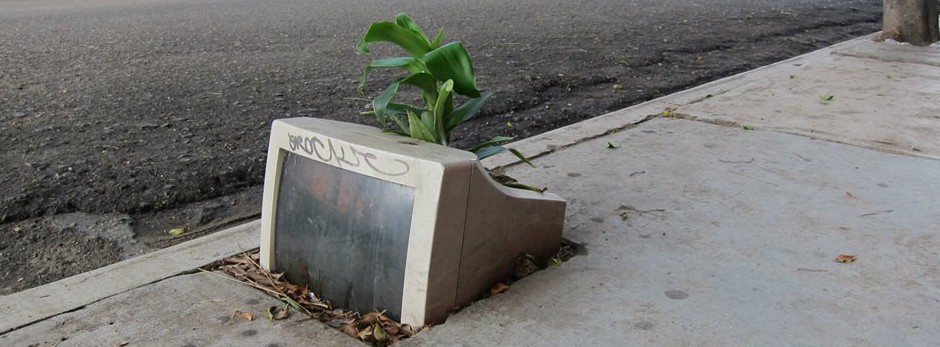



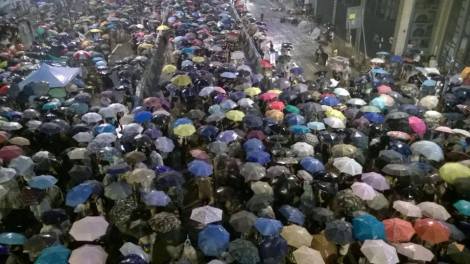
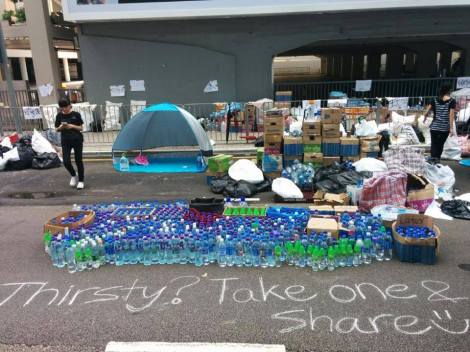

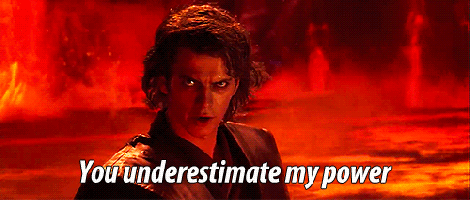
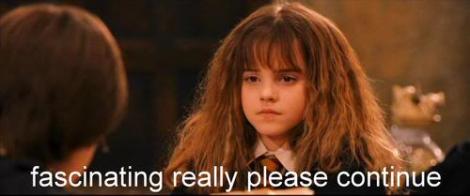
Great post. Lots of interesting questions! I’m going to add another: can we ever step out of the hegemony? (I guess that’s called a ‘revolution’!).
This article provides some interesting info on how social media is reshaping news (mostly in America). Perhaps this idea of ‘reshaping’ is an example of where the hegemony might be challenged (or at least influenced)? So many questions…
http://www.pewresearch.org/fact-tank/2014/09/24/how-social-media-is-reshaping-news/
LikeLike
Cheers Tim! Yep I like your first point : ) The research you’ve linked is super interesting too. Stats like half of social media users have shared, commented etc are intriguing but do you think it’s just a reflection of the offline world?
For instance, before social media did people talk just as much (perhaps even more) about news and current events? I’m keen to heart your thoughts : )
LikeLike
Hi Emmica. I tend to think that citizen journalism can definitely help us ‘fight the good fight’ – when it’s done well. But contributing to mainstream media is unlikely to help. One of my home-grown citizen journalist heroes is Margot Kingston, retired member of the Canberra press gallery and Chief of Staff at the Sydney Morning Herald. She quit Fairfax to establish citizen journalist website “No Fibs” in direct response to “the collapse of the mainstream media as an accountability mechanism” (http://nofibs.com.au/2013/03/15/citizen-journos-unite/). The initial purpose of the site was to facilitate citizen journalists in providing meaningful coverage of the 2013 Federal election. It was as a citizen journalist that Kingston saw herself “again fulfilling [her journalistic] vocation … while watching the death of the old media and playing a part in the new”. Kingston and her stable of citizen journalists, in combination with other grassrooots activities (door-knocking, community meetings, etc) played a substantial role in the win of Sophie Mirabella’s safe liberal seat in Indi by Independent Member, Cathy McGowan. A real coup.
LikeLike
That’s a great example thanks and I agree that citizen journalism can be powerful if executed well. Likewise, if conducted along side other activities as you mention.
Regarding people contributing content to media outlets, do you think this is a negative thing? Or do you think it doesn’t really matter?
LikeLike
I guess my feelings about contributing to mainstream media is more the exploitation factor – it means you are providing content for free, which they make money off. And it can do real harm. For example, many major media outlets – take Fairfax for one – have sacked almost all of their professional photojournalists. They can get away with this because there’s so many people who willingly give them their own photos for free.
LikeLike
Yep exactly my sentiments. Pretty clever on their behalf really but I agree it’s exploitative. We like in an interesting time hey!
LikeLike
Very interesting thoughts, Emmica!
I definitely agree that there is an exploitation factor to citizen journalism. From a journalist’s perspective I think it has everything to do with under-resourcing. Publications are forcing journalists to multitask in ways they traditionally weren’t expected to. Today you’re expected to find stories not necessarily in your field of expertise, write/produce them, sub-edit your own work and publish it quickly – a process that traditionally involved several specialists to maintain high standards. In my opinion that is why you see terrible spelling mistakes, poor quality stories etc online – these people simply do not have the time! And that’s we’re citizen journalists come in. They offer free content and free money.
Having said that, a lot of people would get a huge kick out of seeing their content published!
LikeLike
Cheers Amy!
Yes I can definitely understand the pressures faced by professional journalists. I think many publications even outsource sub-editing overseas now!
Did you see this in The Guardian? http://goo.gl/no5KmQ It’s about how artificial intelligence platforms can be used to generate automated news from live data sets and content harvested from previous articles.
What do you think the future holds for professional journalism?
LikeLike
Hi Emmica,
Citizen journalism is a great means of sticking it to the man, especially if a good piece goes viral. I am curious as to how much it can replace traditional journalism…..
One issue may be that editorial rigour is lacking in much citizen journalism, as compared with traditional media. Although, perhaps the network of citizen journalists and their audience could encourage good standards by promoting good articles and ignoring the crap, a bit like a self-correcting system?
Another issue for citizen journalism is that most citizens lack the time or resources to embed themselves in some situation to produce a thorough investigation. I guess it be countered that the more citizen journalism, the less need for embedded journalists as the locals ‘on the ground’ may themselves report on events.
This raises an interesting question: what is the best type of citizen journalist? Is it one that is heavily involved in some issue or event, and thus can provide a lot of rich, lived information on how it affects them and others? Or would it be someone removed enough to have more ‘objectivity’?
In this vein, I also worry a little about the blurred lines between activism and citizen journalism. If journalism aims for objectivity and activists are heavily invested in a particular point of view, do you think some citizen journalists could be getting exposure for one-sided articles? Perhaps they (citizen journalists) also ‘adapt to constraints’ – the constraints here being that their loyal following wants a certain set of values and perspectives espoused as ‘one of them’.
The again, I have read amazingly objective and thorough reports produced by strongly activist NGOs, and their convictions didn’t seem to get in the way of the pursuit of objectivity, so perhaps citizen journos can prove me too cynical. That would be great!
What an interesting topic!!
LikeLike
Thanks for the comment Ben, you raise some excellent points : )
I agree that not everyone has the time or resources to conduct in-depth investigative journalism and unfortunately I think it is also true for many of the major media outlets. Likewise, I agree that there is a blurring of activism and citizen journalism and I think it matters to a certain extent but more in the sense that we need better media literacy in our education system.
As a post-modernist, I don’t really think that true objectivity exists and whilst people’s biases might be strongly expressed at times, even subtle prejudices influence the way both citizen and professional journalists communicate stories and information. I think that whilst anyone disseminating information has ethical obligations regarding the type of content they create – I do believe that we should focus more on enabling people to be critical consumers. Do you feel the same way?
LikeLike
Great post Emmica! I think it really depends on context, to be honest. There are lots of questions around this, including where do we draw the line between, say, citizen journalism and whistle-blowing, or citizen journalism and activism. Is it only journalism once it’s published? Whistleblowers on Manus Island are active in using mainstream media channels to expose problems at the detention centre in the absence of professional in-situ coverage. Google “Manus Island Whistleblowers” and you’ll see coverage from Jun to Oct this year in a variety of news outlets, including publicly funded, commercial and independent media. If a whistleblower is knowingly gathering information to send on to major news outlets, does this information-gathering process constitute journalism – even if the whistleblower does not write the story itself? It’s a fuzzy line (more convergence!) but I think it does. In cases like this, circulating the information via social media is a liability as users are identifiable. Of the remaining channels, mainstream media promises greater exposure for the issues than independent media/blogs can offer. In cases like this, I don’t think it is problematic for whistleblowers/citizen journalists to use mainstream media channels to advance an issue that is either under-represented (or mis-represented) in mainstream media. (I may well be taking a naive reading of the situation: it may well be that some detention centre workers are receiving remuneration from media outlets in return for information, or that there are undercover journalists working in the facility… all possible too!)
I’m also thinking of the work that Animals Australia did on animal welfare in the live export trade, where video footage and information was gathered with the purpose of passing it on to mainstream media. Is this activism, citizen journalism, or both? Journalism by concerned citizens… but similar point here too.
So, probably not very helpful but I think it’s difficult to make generalisations on this one. As with so many things, context is key!
LikeLike
Cheers Elicia! Yep it’s a blurred line and the more I think and read, the more I tend to believe that it’s hard to be a citizen journalist and not an activist. Usually the point of citizen journalism is to call attention to an issue that is not being represented (or represented unfairly) by the mainstream media. So in this sense is really it activism.
Whilst I’m still not convinced it smashes power structures, maybe it makes a dent in some instances!
LikeLiked by 1 person